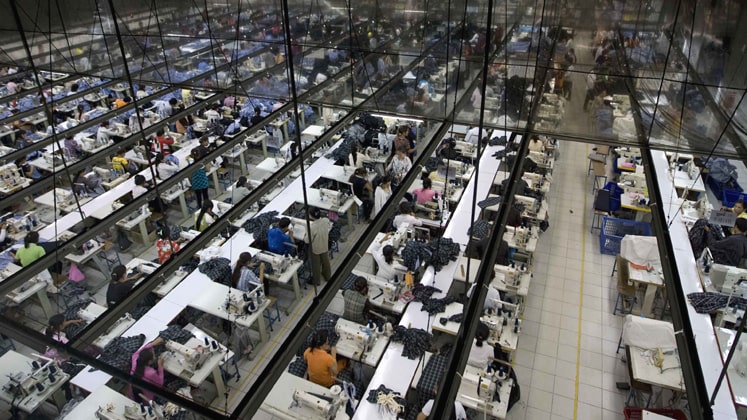In an industrial area like Prato (Italy), it is common to see pieces of fabric falling from white trucks on the streets as they drive through the city at the prevailing pace of fast fashion. Prato, the provincial capital of Tuscany, is a city of two hundred thousand inhabitants; with its seven thousand companies in the fashion and textile industries, it is a reference point for Made in Italy clothing. In this city, where migratory flows and industrial districts are intertwined; one hundred and twenty-five ethnic groups are present in the territory, the Chinese community is the most populous representing 20% of the total (33244 inhabitants), followed by the Albanian community (4826) and the Pakistani community (2420). There are 4830 Chinese enterprises in the territory with a production of around 2-2.3 billion and 11 thousand registered employees. However, research has shown that the number of workers should be around 20 thousand. It is in this cross-section of the underground economy that the indiscriminate exploitation of labourers, who, in a state of need, are more blackmailable and therefore forced to submit to any conditions, fits in. This is what often happens to asylum seekers, who are forced to accept part-time contracts, behind which are hidden massacring shifts of twelve hours a day, seven days a week. Having landed on the Sicilian and Calabrian coasts, the asylum seekers are then redistributed across the Italian territory; in Prato there are 450 of them in the ‘extraordinary reception centres (Cas)’ where they stay while waiting for the outcome of the asylum application. According to the European Union, the process should be resolved in thirty days, while in reality it takes four or five years. Such long delays, probably all Italian, are due both to the high numbers of asylum applications at the overburdened Territorial Commission and to the possibility of the asylum seeker to appeal in first and second instance, once he has received a negative response from the Commission (the average wait for an appeal in Italy is about one or two years). During this time when lives are suspended without documents to change countries, asylum seekers remain in Prato with a residence permit renewable every six months that allows them to work, as well as guaranteeing access to medical care and education. Thanks to this residence permit, companies manage to take care of the legal paperwork: asylum seekers can be granted work contracts, but the working conditions reveal much about the the dark side of industry.
Thus, asylum seekers work twelve or thirteen hours a day without having the time to wash their clothes, clean their rooms or even prepare healthy food for themselves (alternatively, they can eat at the factory but the price of meals is then deducted from their monthly salary at the end of the month). These are all elements that do not allow for a dignified quality of life; indeed, and unfortunately the violation of their human rights has not deserved much attention. As shown by research carried out by the Regional Economic Planning Institute of Tuscany (Irpet) and the Economic and Social Observatory of the Province, the drop in GDP recorded by official data does not take into account the aforementioned underground economy, which although mainly headed by Chinese companies, is sometimes also found in Italian companies. For example, big brands such as Gucci subcontract work to firms in the Scandicci area, on the outskirts of Florence: the logic of exploitation is the same.
An old Somali student of mine, Mohamed (invented name), with whom I have been in contact since the days when I taught Italian in the reception centres, worked for a while in a subcontracting company. From there he sent me audios in which you can hear the voice of an Italian woman shouting to work faster, not to sit down, not to talk (which would be difficult for a Somali to talk to a Chinese colleague): they sew or iron for 12 hours a day standing, in silence. So fast fashion is ready. Immigration councillor Faggi, whom I interviewed in 2019 for my specialist thesis, aware of the exploitation of asylum seekers, told me that it was too difficult for the municipality to monitor the Chinese companies: ‘during the controls there are always tips and then they manage to close and reopen with ease, changing names, tax codes etc’. For the record, it must be said that the Municipality of Prato has provided a desk (Satis) where asylum seekers can denounce exploitation and with which municipal administrations can -perhaps- clear their conscience. Accompanying them on this path of awareness of exploitation are the operators of the reception centres and the structures’ lawyers. However, on the day of the denunciation, almost all of them either back out or are simply no longer in Italy but in the country of origin.
Image – Pinterest.com

